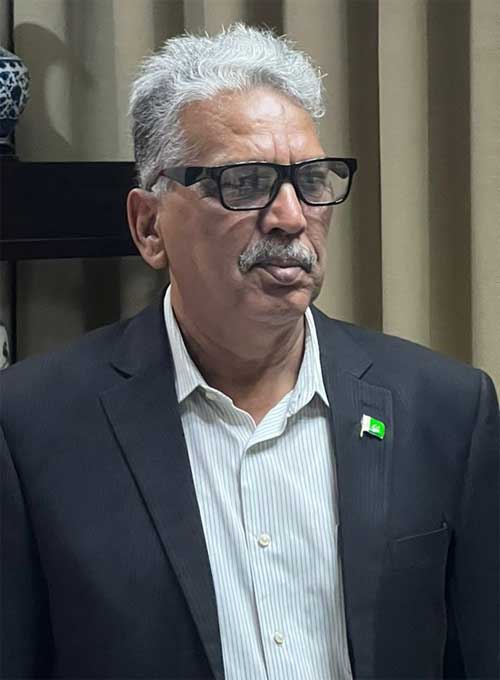The history of nations is often shaped by exceptional leaders who possess a unique blend of vision, determination, and political acumen. Quaid-i-Azam Muhammad Ali Jinnah, the founding father of Pakistan, stands as an illustrious example of such leadership. His life’s journey, marked by unwavering commitment to his people and a relentless pursuit of a separate homeland, reveals his exceptional role as the architect of Pakistan.
Early Life and Education
Born on December 25, 1876, in Karachi, then a part of British India, Jinnah hailed from a merchant family of modest means. His early years were marked by personal tragedy, with the loss of his parents and first wife. However, these trials only steeled his determination and instilled in him a sense of responsibility towards his community.
Jinnah’s educational pursuits took him to England, where he honed his legal skills and imbibed the values of justice, fairness, and equality. His experiences in London exposed him to the workings of a democratic system, which would later shape his political ideals.
Vision of a Separate Homeland
The seeds of Jinnah’s vision for a separate homeland were sown during his involvement in Indian politics. As the leader of the All India Muslim League, he became the champion of Muslim rights in a largely Hindu-dominated subcontinent. His vision of a separate nation for Muslims emerged from concerns about their cultural and political representation within a united India.
Jinnah’s Two-Nation Theory, articulated in the 1940 Lahore Resolution, proposed that Muslims and Hindus were two distinct nations with differing cultural, religious, and political identities. This theory formed the bedrock of his demand for a separate Muslim state, where they could live and prosper according to their values and principles.
Political Strategies
Jinnah’s political strategies were characterized by a blend of pragmatism and principle. He was a staunch believer in constitutional means and negotiated with the British colonial authorities to safeguard the interests of Muslims in India. His legal acumen and persuasive oratory skills made him a formidable negotiator on the political stage.
One of his most remarkable achievements was the negotiation of the Lucknow Pact in 1916, which aimed to bring together the Muslim League and the Indian National Congress on a common political platform. Although the pact later faced challenges, it demonstrated Jinnah’s ability to bridge political divides for the greater good.
Unwavering Determination
Jinnah’s journey towards the creation of Pakistan was marked by numerous challenges and setbacks. He faced opposition from various quarters, including within his own party. Yet, his determination remained unshaken. His conviction in the justness of his cause and his unwavering commitment to the betterment of the Muslim community propelled him forward.
In the face of immense pressure and political maneuvering, Jinnah never compromised on his principles. He continued to advocate for the rights of Muslims and the establishment of a separate homeland, often in the face of seemingly insurmountable odds. His speeches and writings during this period stand as a testament to his unyielding resolve.
Leadership during Partition
As the demand for Pakistan gained momentum, the subcontinent was thrust into a whirlwind of communal tensions and violence. The process of partition in 1947 was marred by widespread bloodshed and displacement. In this turbulent period, Jinnah’s leadership was vital in ensuring a smooth transition.
His efforts to maintain law and order, protect the rights of minorities, and provide a sense of direction to the newly formed state showcased his statesmanship. He worked tirelessly to establish the foundations of a nation that would uphold democratic values, religious tolerance, and social justice.
Legacy and Conclusion
Quaid-i-Azam Muhammad Ali Jinnah’s legacy is etched in the history of Pakistan as the guiding light of its creation. His vision for a separate homeland and his unwavering determination transformed a dream into reality. His leadership not only secured the rights of Muslims but also laid the groundwork for a nation founded on principles of equality, justice, and democracy.
Jinnah’s life is a testament to the power of leadership driven by conviction, intellect, and a commitment to the greater good. His ability to navigate through complex political landscapes and steer his people towards a shared goal sets him apart as an extraordinary figure in the annals of history.
The story of Quaid-i-Azam Jinnah’s life and leadership continues to inspire generations, not only in Pakistan but across the world. His principles remain relevant as societies strive to build nations that value diversity, protect individual rights, and foster unity amidst differences. As the architect of Pakistan, Jinnah’s legacy serves as a reminder that with vision, determination, and unwavering resolve, individuals can shape the destiny of nations and leave an indelible mark on the course of history.




